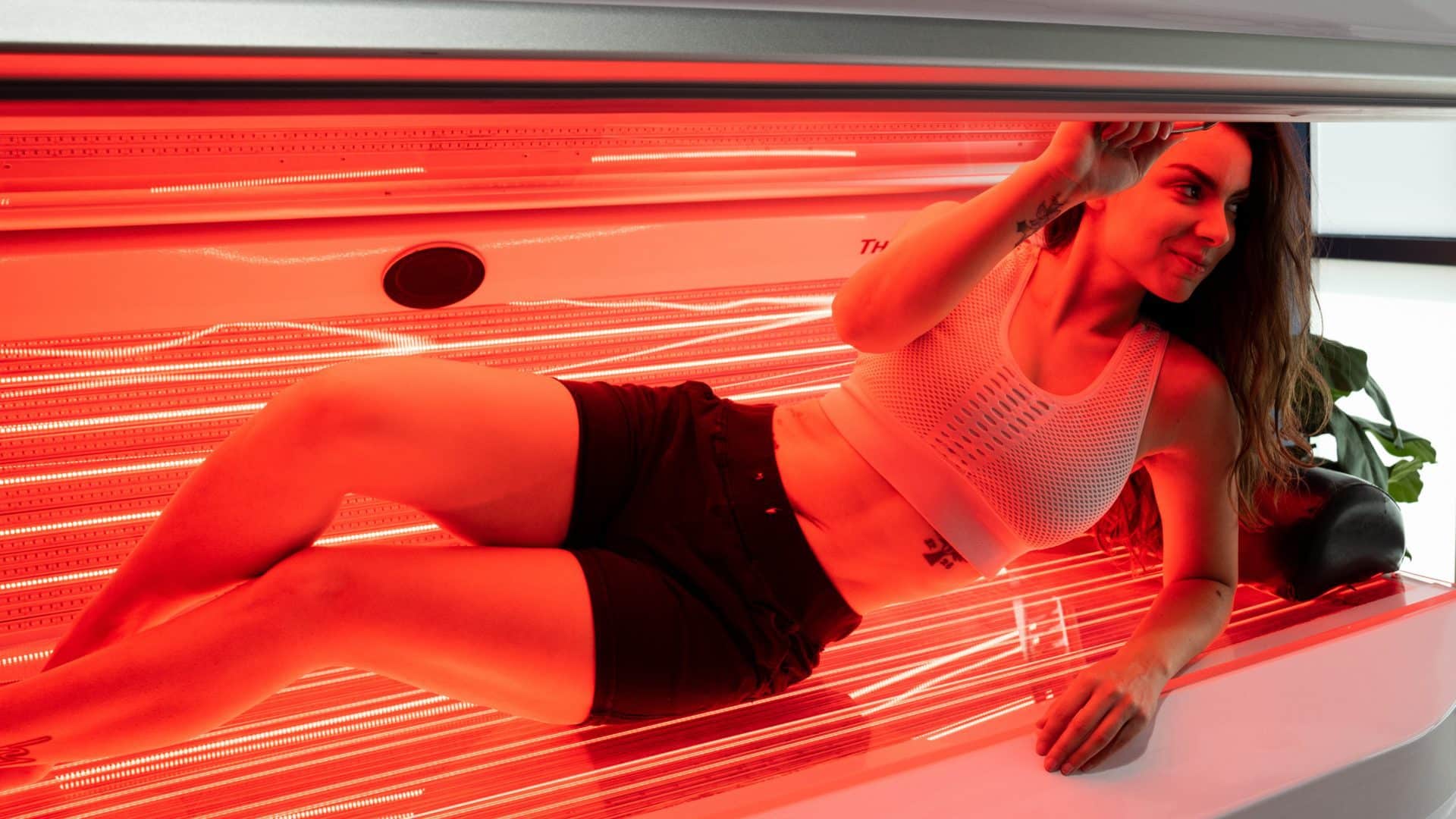Overview
PBM stands for Photobiomodulation; formerly, it was also known as Low-Level Light Laser Therapy (LLLT). PBM is the use of light to therapeutically treat the body, and benefits can include tissue repair, the reduction of inflammation, and increased energy production.
While some may be skeptical of light’s healing properties, we must remember that light is highly connected to the various human organ systems. For example, the sole fact that you are able to read this post is because light is causing photosensitive cells in your eyes to send electrical signals throughout your brain. We also use the sun to produce Vitamin D when we absorb its radiation into our skin.
But how does it really work?
The reason why we need to breath oxygen and eat food is because they allow the “power houses” within our bodies’ cells (small organelles called mitochondria) to generate ATP, the molecule that ultimately gives our bodies energy. During this process of converting oxygen and food into ATP, a specific enzyme called Cytochrome C Oxidase (CCO) is in charge of binding oxygen into this process; however, free radicals and other molecules (such as ROS, or Reactive Oxygen Species) can sometimes compete with Oxygen and take its spot, which “clogs” ATP generation in the mitochondria. This issue is referred to as Oxidative Stress, and it is one of the causes of cell death, early aging, and many other health problems including cancer. PBM, using light waves, excites CCO and drives away ROS, allowing more oxygen to come back into the ATP-making process.
This edge cutting technology has been studied and scientifically proven to affect our bodies through a range of benefits. As mentioned by Pinar et al, PBM can be used for stimulation of healing, reduction of inflammation, reduction of cell death, and skin rejuvenation.
Benefits of PBM
1. Decrease Inflammation
PBM has been proven to diminish the expression of inflammatory proteins and improve blood circulation in the body. According to a study carried out by Michael Hamblin, one of the most reproducible effects of PBM is an overall reduction in Inflammation, which is particularly important for disorders of the joints, traumatic injuries, lung disorders, and the brain. PBM can also reduce Inflammation in the spinal cord, as well as in abdominal fat and wounds.
2. Rejuvenate Skin
The ability of Infrared Light to penetrate the Skin and re-energize the cells enables the production of collagen. According to Pinar et al., PBM has beneficial effects on wrinkles, acne scars, hypertrophic scars, and the Healing of burns. PBM can reduce UV damage both as a treatment and prophylactic measure. In pigmentary disorders such as vitiligo, PBM can increase pigmentation by stimulating melanocyte proliferation and reduce depigmentation by inhibiting autoimmunity. Inflammatory diseases such as psoriasis and acne can also be managed.
3. Reverse Oxidative Stress
Oxidative Stress occurs naturally in our bodies as a part of everyday cell processes, mainly due to the presence of Reactive Oxygen Species (ROS). ROS are necessary for many chemical reactions in our body, including apoptosis (cell death). Typically, ROS are balanced inside our cells by antioxidants such as Glutathione. If ROS and antioxidants become unbalanced, harm can come to our bodies. PBM “can up-regulate antioxidant defenses and reduce oxidative stress” (Hamblin).
4. Energy Production
As mentioned before, PBM Red Light Therapy increases the body’s available energy by enabling the mitochondria to produce more ATP. By increasing the ability of our bodies to have more energy, our bodies can direct that power to tasks that are essential for its optimal performance, be it cell repair, cell production, or cell metabolism.
5. Improve Healing
Red Light Therapy has shown its ability to heal our bodies and shorten repair time. PBM heals broken bones and muscle tears to burn wounds. According to Gupta et al., PBM “can penetrate deeper in the injured tissue and could allow non-pharmacological treatment for chronic wound healing.”
6. Pain Management
A study of 88 randomized controlled trials indicated that [PBM] can significantly reduce pain and improve health in chronic joint disorders such as osteoarthritis, patellofemoral pain syndrome, and mechanical spine disorders (Bjordal et al.).
7. Improves Sleep
PBM Red Light Therapy is proven to impact sleeping behaviors. The effects include resetting the circadian rhythm in the body, “improving memory, diminishing Oxidative Stress in the hippocampus,” and improving α and β brain waves (Farzad et al.).
8. Aids in Hair Growth
“One of the most commercially successful applications of PBM is the stimulation of hair regrowth in balding individuals. The photobiomodulation activity can cause more hair follicles to move from the telogen phase into the anagen phase. The newly formed hair is thicker and more pigmented” (Chung et al.).
9. Heals Traumatic Brain Injury
Research has shown that “PBM as a treatment for traumatic brain injury and other brain disorders, including stroke, neurodegenerative diseases, and even psychiatric disorders, has increased markedly. It is thought that the actions of NIR light shone on the head and penetrating the brain are multi-factorial, but one clear effect is the anti-inflammatory action of transcranial PBM” (Hamblin).
10. Help Treat Mood Disorders
People who suffer from depression, anxiety, and other mood disorders have benefited from the effects of PBM. Further, individuals with incurable diseases such as dementia, Alzheimer’s, and Parkinson’s have shown more significant improvement in mental capacities (Berman).
11. Macular Degeneration Treatment
Studies suggest that Age-Related Macular Degeneration (AMD), while uncurable, can be mitigated by using targeted PBM therapy; the usage of PBM can lead to “improvement in Visual Acuity and Contrast sensitivity immediately following the treatment, which remains statistically significant at one year” (Graham et al.).
12. Improve Sport Performance
Because PBM can give cells more energy to heal, it, therefore, can provide an optimal atmosphere for the cells of athletes to repair and replicate. In 2015, Pinto et al. found that most clinical trials showed “significant improvement for the main measures related to performance,” including endurance and speed. Further findings indicate that “phototherapy improves muscular performance and accelerates recovery when applied before exercise.”
Risks and side effects
There are no known side effects of using PBM Red Light Therapy because it uses low-energy wavelengths that do not have enough energy to remove electrons from atoms (non-ionizing radiation). However, caution should be used when exposed to high-capacity lasers. Potential hazards in these lasers include burning, soft tissue damage, and blindness. Our sessions limit exposure to 15 minutes to protect our guests.


